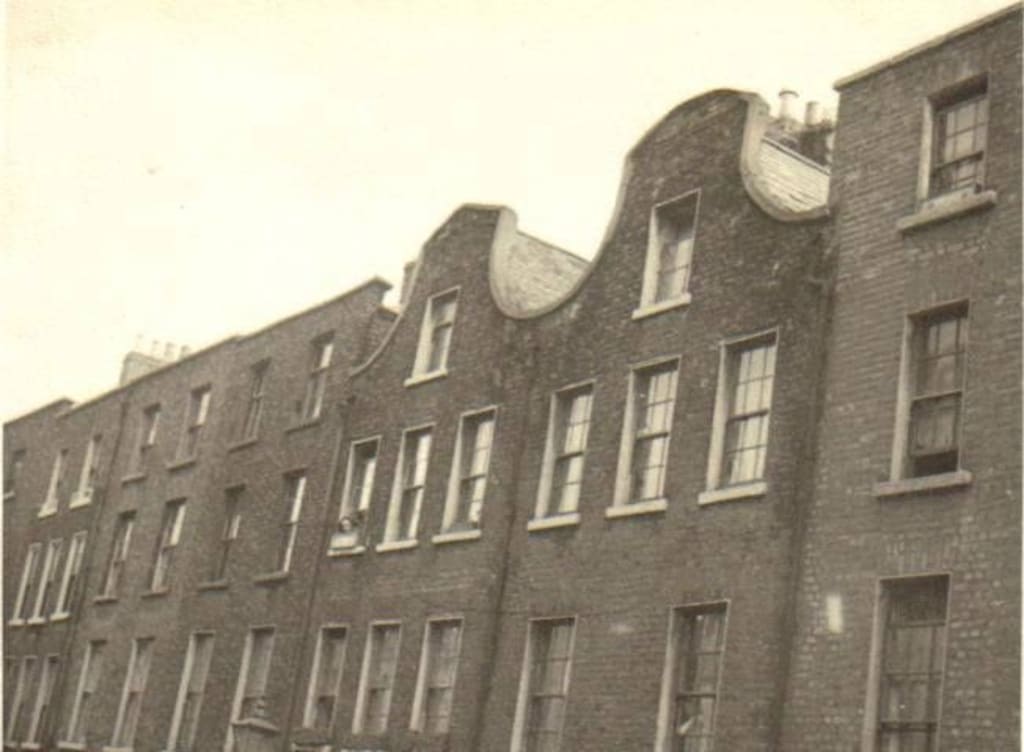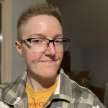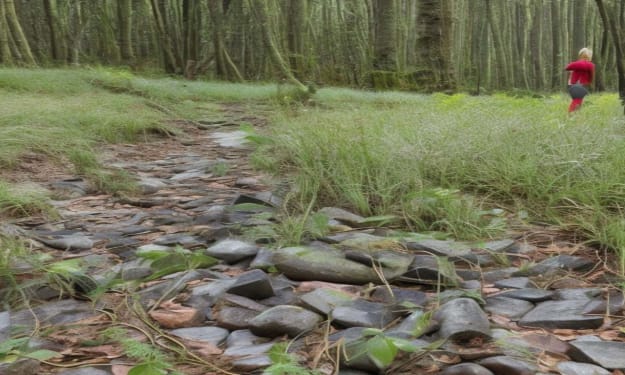Piecing My Family Back Together
Fragmented by emigration, reunited by a letter and a WhatsApp call.

As I stood in the arrivals hall at Dublin Airport with my dad, clutching a takeaway cup of coffee, I felt a pang of nervousness and excitement. It was hard to believe this wasn't an episode of Long Lost Family, and Nicky Campbell or Davina McCall weren't about to stroll up at any moment and wish us good luck.
The reunion itself, however, was exactly like Long Lost Family. Actually, it was even better than that. There were hugs — long hugs — and one or two tears as well. In short, everything any of us could have hoped for.
The people we were greeting at the airport were my dad's cousin, Rose, and her husband, Tom. They'd flown in from Birmingham to meet us face-to-face for the first time and spend the weekend getting to know the whole family. It was a journey that had begun a little over a year earlier, with a letter and a WhatsApp call. Or at least that's where this particular part of the journey began. It really began with someone else: Rose's mother, Jane.
Jane was my grandad Stephen's sister. The middle child of three, she was almost exactly two years older than him (their birthdays were just three days apart) and two years younger than their other sister, Kitty. They had an impoverished childhood in Dublin's south inner city in the 1920s and 1930s, growing up in tenements. Their father died in 1939, leaving my fifteen-year-old grandad as the family's main earner, followed by their mother in 1945 — tragically, on my grandad's birthday. Life was tough in the wake of World War II ('The Emergency', as it was known here in Ireland) with food rationing and coal and fuel shortages, and the three of them were barely scraping by. Kitty got married early in 1946, and some time that year Jane emigrated, ending up in Birmingham like so many other young Irish people, where there was plenty of work available in factories.
And that was all any of us ever knew about her, apart from a single photograph my grandad had from before she left, which was eventually lost. They'd lost touch after a change of address in the 1950s. Grandad and Kitty both died without ever re-establishing contact with their sister; by that time, although nobody knew it yet, she herself had been dead for quite a few years already.
As a child, I knew all but one of my grandmother's siblings and had seen plenty of photographs of them, and their parents, when they were young. In contrast, my grandad's family was practically non-existent, at least as far as I knew. I had no idea he'd even had sisters until after he died, nor did I know his parents' names until I was shown a copy of his birth certificate. These revelations got me started on the genealogy path, and from then on I was determined to find out what had happened to Jane.
It was far from easy. Everyone assumed she had married, but no one knew a surname. They thought she might have had children, but no one knew their names. I spent many hours trawling through records online and getting nowhere. I even posted what little information I had on a UK-based website aimed at finding lost relatives. Again, nothing materialised. Until one day in 2021.
I don't know why I hadn't considered doing it before, but in a last-ditch attempt to find her, I decided to search death records under her maiden name instead of assuming she'd married. And that's when I found her. I still remember how my hands shook as I tore open the brown envelope when it arrived in the post from the General Register Office in England. The date and place of birth matched exactly. Then came the worst part: she had died in a road traffic accident when she was in her early sixties. As awful as this news was, I still wanted to know more about what had caused the accident. The certificate stated a date for an inquest, so I sent an email to the Birmingham coroner's office requesting a copy of the report. They were very courteous in their response, but explained that it would take a while to retrieve the file from their archive due to a COVID-19 backlog. Even so, I didn't anticipate that I would be waiting for this document for a whole year; a year in which I couldn't make any more progress in my research.
In February 2022, I received an email from the coroner's office with the attached file. I admit I had to pause and take a deep breath before opening it; I was aware it wouldn't be an easy read emotionally. It wasn't, but at the same time it gave me a crucial missing piece of information: the names of her two children, one of whom was Rose.
What's the first thing you do when you learn the names of your dad's cousins? These days, you check if they're on social media. They weren't. But there was another option.
What were the chances Rose would still be living at the same address listed? There was only one way to find out. I agonised over writing the letter: What if she didn't want to hear from any of us? Would I be dragging up painful memories that she'd rather forget? Had her mother even mentioned much about her roots? I voiced my concerns to my cousin, with whom I'd shared the information I'd discovered so far. She urged me to go ahead and do it: she'd probably be delighted that someone was looking for her.
I wrote down every bit of relevant information I could think of and included photographs of Grandad, in case there was a strong resemblance and it made everything seem more real. I included phone numbers and email addresses for both me and my dad, and finally I put a return address on the envelope — in case she'd moved away and never received the letter, and if she did receive it, to hopefully lessen any potential shock associated with opening it.
I only realised later that I posted the letter on Grandad's birthday (completely unintentional), and subsequently found out that it arrived at its destination on Jane's birthday. The next day, my phone pinged. It was a text from my dad: I got an email from Birmingham!
Rose's email was amazing. She seemed genuinely delighted to have heard from us (much to my relief) and she gave us a little bit of information about her mother, describing her as a lovely, kind lady to whom she was very close. She added that she knew all about Stephen and Kitty and was really pleased to see the photos I'd sent. Unfortunately we also learned that Rose was Jane's only surviving child, as her younger brother had died some years earlier. But we got to see photos of the two of them as children, as well as one of Jane in the early 1960s, holding her little boy in her arms. With her wavy black hair (which Grandad and Kitty both also had in their younger years) and strong resemblance to my auntie (whom Grandad used to say reminded him of Jane), she looked so familiar to me. I felt as though I'd seen her many times before.
By the end of that week, my dad and I were nervously sitting at the kitchen table, waiting to start a WhatsApp video call with Rose and her husband Tom. When the call connected, there was a lot of: "Wow... this is strange, isn't it?!" But things soon settled down and we were having a nice conversation. It turned out my plan had worked; when the letter arrived and Rose saw the name and return address on the envelope, she knew immediately it had to be from one of her long-lost relatives in Ireland. It came as a huge shock, but a really good one!
After a few weeks and a couple more video calls, we could feel that everything had become much more relaxed. We were all comfortable enough to be able to make jokes and have a laugh, and also discuss some uncomfortable and at times painful subjects concerning our family. I had often wondered how close my grandad and his sisters were, given the break in contact that later occurred, so it was very poignant to hear that Jane often spoke about her brother and sister back home and how much she missed them. The untimely deaths of her parents were also a great source of sadness for her. This really brought home to me the hardship those three siblings endured, as well as the tight-knit bond they would have shared as orphans, when all they had was each other.
That bond wasn't lost straight away. Jane actually returned to Dublin for a visit in the summer of 1956, with her baby daughter in tow. A devout Catholic, she had Rose baptised in one of the local churches. Given the timing of this visit, it's highly likely she would have met at least some of her nieces and nephews. Rose, who grew up hearing her mother's stories of places like St. Stephen's Green (right around the corner from the tenements where she grew up), had always wanted to come back to Dublin as an adult but never got around to doing so. Now, having found her family, she had the perfect reason.
Which brings us back to the big reunion weekend. I was able to point out the school Jane attended and the location of the tenements, as well as taking Rose inside the church where she was baptised. She also paid a visit to my grandad's grave. But by far the best moment of the entire weekend, for me, was an afternoon spent in the company of Kitty's children. This wasn't just a new experience for Rose; I'd never met any of them before either, and it had been years since my dad and his sister had last seen them. For two hours there was reminiscing and laughter, and photographs were passed round the table. One of Kitty's daughters told me that her son was named after my grandad. That told me everything I needed to know about how fondly they all remembered him. I hadn't even realised quite how frequent his visits to Kitty's house were over the years. Looking around at these people who were my family, I thought: They've been here all this time. I just didn't realise. All of a sudden my grandad wasn't just my grandad, or somebody's dad or husband. He was somebody's uncle. And, even though he and his sisters were long gone, the stories and memories being shared made him somebody's brother again.
At the end of the afternoon, I took a photo of all the cousins together for the first time. One by one they hugged me and thanked me for bringing everyone back together again. Later that evening, after the rest of us had gone out for dinner and we were dropping Rose and Tom back to their hotel, Tom hugged me too and said something I wasn't expecting: "You've changed her life." (This is the point where I'll admit I cried on the way home.)
There are things I haven't written here; reasons why Jane's life in Birmingham was far from easy. She left Dublin for a better life and sadly endured even more hardship, while always doing her absolute best for her children, whom she clearly adored. Rose lost her mother far too early, and her brother too. When I posted that letter, I was hoping for a good outcome. I wanted to piece my family back together, to know more about them, because my grandad and his sisters never got the chance. But I never could have imagined that I'd also be giving someone else a family after so many years without one.
It's easy to worry about how you'll be perceived: "Oh god, I hope they don't think we're too dysfunctional!" But families don't have to be perfect. No family is. They just have to be open and accepting, to reach out their hands and say, "Here we are — this is us. You're part of us, so come on in." And that means more to some people than we can ever fully appreciate.
About the Creator
Sarah Stacey
Storyteller, audio producer, writer and genealogy nerd, writing mainly about ancestry and social history. Loves coffee and a good book.






Comments
There are no comments for this story
Be the first to respond and start the conversation.